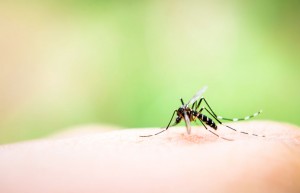 Declared a “public health emergency” by the World Health Organization, the Zika virus appears to have entered into the United States yesterday, “through sex”.
Declared a “public health emergency” by the World Health Organization, the Zika virus appears to have entered into the United States yesterday, “through sex”.
The virus, usually associated with mosquito transmission, is a flavivirus. The same family as West Nile, yellow fever, and dengue.
While the illness is often mild, there can be long term effects including complications with birth and major birth defects in newborns.
These birth defects include microcephaly, a neurological disorder that can deform babies skulls. This can lead to developmental issues and death.
There are several hundred confirmed cases of microcephaly in Latin America.
There is no vaccine.
Blood Borne Virus
Zika is a blood-borne virus. It is most commonly transmitted through the bite of an Aedes mosquito but it can also be transmitted through blood transfusion, sexual contact, and from mother to child.
According to the Centers for Disease Control and Prevention, common symptoms include:
- Fever
- Rash
- Joint Pain and
- Conjunctivitis or Red Eyes
Alarmingly, 80% of people infected never know.
What You Can Do at Home
63% of Americans live where Zika can spread.
Prevention at home starts with education. Take some time to learn more about the virus from credible authorities, like the CDC and the WHO.
Preventing Mosquito Bites. To reduce mosquito bites, start by wearing long-sleeved shirts and long pants. Stay indoors and use EPA registered insect repellents.
Remove standing water from around your home by checking for:
- Animal Dishes
- Bowls
- Buckets
- Flower Pots
- Ponds
- Water Features
- Vases















